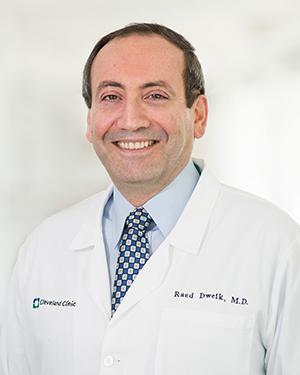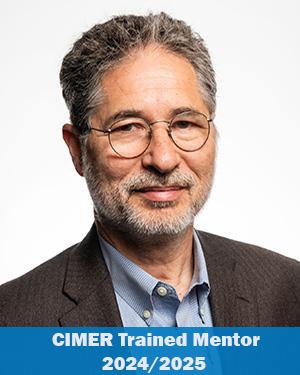Research News
06/15/2021
Research Training Programs Receive $3 Million to Support Students and Early-Career Scientists
Critical federal support will enable trainees to pursue greater research efforts into basic science and critical care medicine.

Two training programs at Cleveland Clinic-the Supporting Multidisciplinary Achievement in Respiratory Research Training (SMARRT) Program and the Molecular Medicine PhD Program-have received significant new federal funding (called T32 grants) from the National Institutes of Health (NIH) to support students who are planning careers in those disciplines.
A foundation for a productive career
The SMARRT program, a collaboration between the Respiratory Institute and Lerner Research Institute, supplements the education of postdoctoral trainees in the areas of pulmonary, allergy or critical care medicine by supporting research in heart-, lung- and sleep-related disorders. Raed Dweik, MD, chair of the Respiratory Institute and researcher in the Department of Inflammation & Immunity, is enthusiastic about the possibilities offered by the new $1.6 million grant from the National Heart, Lung, and Blood Institute. "This grant will fill an important gap in our existing research training portfolio by providing structured research training," he said.
As one of NIH's main types of institutional training grants, T32 grants cover tuition, travel, health insurance and stipend costs for students and trainees. The support can be instrumental in helping prepare the next generation of researchers for a productive career.
"Trainees supported by this program reap huge benefits-they will be deeply engaged in experimental approaches and will form valuable mentor-trainee relationships. Most importantly, they will gain the research experience needed to enhance their competitiveness for independent research and career development awards that will enable them to rapidly translate scientific discoveries into better ways to diagnose and treat disease," said Dr. Dweik.
Candidates in the program, who receive funding for a period of two to three years, leverage the time toward a career seeking future NIH funding in the pulmonary and critical care fields.
Endorsement via increased funding
The Molecular Medicine PhD Training Program, which is affiliated with the Cleveland Clinic Lerner College of Medicine of Case Western Reserve University (CWRU), is uniquely focused on translational research training and currently has 49 students. From its inception in 2007, it has addressed the need for a cross-disciplinary program that introduces medical knowledge and clinical co-mentoring into traditional biomedical PhD training. Core curriculum courses are taught on the Cleveland Clinic campus, with advanced electives available at both Cleveland Clinic and CWRU campuses. When students graduate, they typically move into academic or NIH postdoctoral positions.
According to program director Jonathan Smith, PhD, this new $1.5 million grant from the National Institute for General Medical Sciences exceeds previous NIH support. "This grant provides critical support for our program, which will be used primarily for first-year students, allowing us to direct more resources toward our educational endeavors. In the past, our T32 support cycles covered four student slots per year. This new grant will support six students."
"The fact that our PhD program was specifically designed to address the needs for translational research identified by the NIH emphasizes the importance of promoting its growth and development," added Dr. Smith, who is also a staff researcher in the Department of Cardiovascular & Metabolic Sciences. "Our trainees are eagerly preparing to take their places as the leaders of the next generations of NIH-funded laboratories translating basic scientific principles to address patient needs."
In addition to furthering scientific discoveries, Lerner Research Institute is deeply committed to training the next generation of biomedical researchers. In addition to these two grants, Lerner Research Institute has received other T32 grants, including ones that support underrepresented minorities in biomedical research and trainees studying digestive disease sciences.
Featured Experts
News Category
Related News
Research areas
Want To Support Ground-Breaking Research at Cleveland Clinic?
Discover how you can help Cleveland Clinic save lives and continue to lead the transformation of healthcare.
Give to Cleveland Clinic
